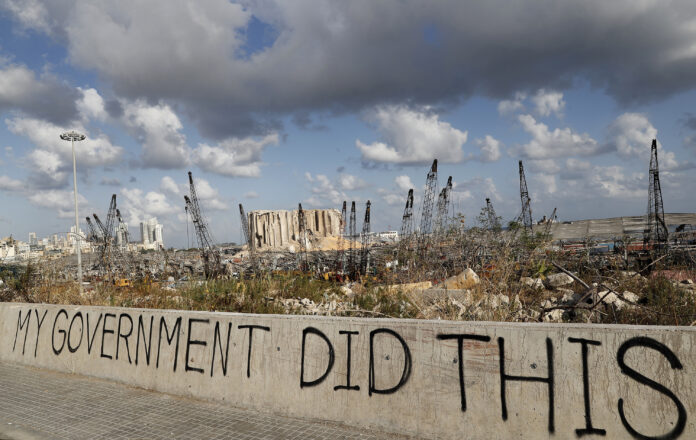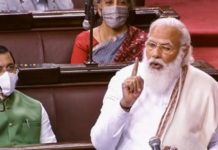
Beirut sees massive protests after the blast at the Beirut port that killed 158 people, injured thousands of others, and has driven the country to the verge of a humanitarian crisis. After initial reports hinted at government negligence being the cause behind the explosion of around 2,750 tonnes of ammonium nitrate, Lebanese protestors stormed several ministries on August 8. The foreign ministry was taken over by protestors for three hours and declared the “headquarters of the revolution”. The near 200 protestors were driven out by army reinforcements using teargas and rubber bullets. Protestors also raided the economy ministry and the energy ministry, and the Association of Banks was ransacked. Nearly 700 protestors were wounded in the clashes with the police, and one police man died. On the second day of protests, protesters hurled rocks at security forces blocking a road near Lebanon’s parliament.
At the huge downtown Beirut protests, which are being heavily teargassed, so many people are carrying nooses and signs like this pic.twitter.com/DEW6YthvHH
— Vivian Yee (@VivianHYee) August 8, 2020
Already in an economic crisis with large-scale unemployment, food crises, poverty, and national debts, Lebanon had seen mass protests in October last year. These protests were sparked off by a series of austerity measures that were introduced in Lebanon, noticeable out of which was the increase in taxes on gasoline and online phone calls. This so-called WhatsApp tax led to a national wave of protests.
The protests began on 17 October 2019, when hundreds of protesters occupied downtown Beirut and grew from there. As the protests spread, so did the issues spread, to corruption, sectarianism, unemployment, lack of state accountability, and need for basic services. Protesters have complained that since 1990, electricity has been provided at 80% of demand. Protestors saw the political elite and their corruption as the root cause of the country’s socio-economic and political issues, and now, the blast.
The blast destroyed huge stores of wheat which is a staple food grain in the country, damaged the port on which the country largely depends on for its imports, destroyed 3 hospitals, and damaged 2, overburdening a healthcare system already reeling under the pressure of the pandemic.
Also Read: “We don’t need your teargas to cry” – the dissenting pangs of Lebanon
Beautiful shots from yesterday’s protest in #Beirut
? Nabil Ismail pic.twitter.com/MPQwqhSvM2— Rayane Moussallem (@RioMoussallem) August 9, 2020
Lebanon’s Information Minister, Manal Abdel Samad, was the first to resign from government, followed by the Environment Minister, Damianos Kattar. They were followed by resignations by 9 Members of Parliament, the Justice Minister, Marie Claude Najm, and Finance Minister Ghazi Wazni. Protestors have called for a rally outside the Baabda palace to demand President Michel Aoun’s resignation. A cabinet meeting scheduled for August 10 amid reports that the whole government might resign.



























[…] Protests in Beirut after Recent Blast: 3 Ministers, 9 MPs Resign […]